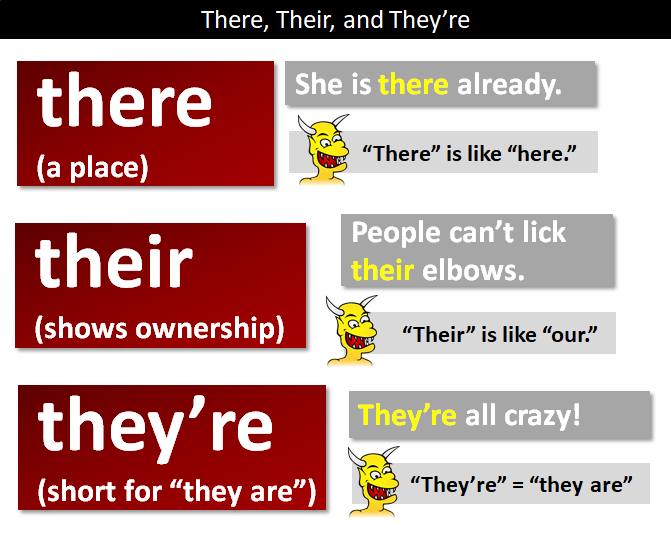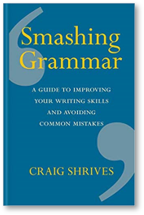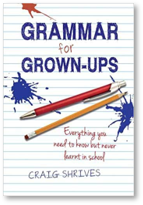There, Their, and They're
The Quick Answer
Confusing "there," "their," and "they're" is a serious mistake.- "They're" is short for they are.
- "Their" shows possession. (It's just like my, his, her, and our.)
- "There" is a place. It's similar to here.
 Got it? Take a quick test.
Got it? Take a quick test.They're, Their, and There
You must not confuse "they're," "their," and "there." A mistake involving these is a grammatical howler.Infographic
Here is an infographic explaining the difference between they're," "their," and "there."
Click on the Two Correct Sentences
(Interactive Game)
Getting ready...
Getting ready...
Getting ready...
Getting ready...
Getting ready...
Getting ready...
Getting ready...
Getting ready...
Getting ready...
Getting ready...

They're
"They're" is a contraction of "they are."There are two types of contraction:
- A shortened version of a word (e.g., "cannot" contracts to "can't")
- One word formed from two words (e.g., "they are" contracts to "they're")
Top Tip
Only use "they're" if you can substitute it with "they are."Example Sentences with "They're"
- They're not leaving on Saturday now.
 (Do the expansion test: "They are not leaving on Saturday now.")
(Do the expansion test: "They are not leaving on Saturday now.") - I cannot believe they're from Wigan.
 (Test: "I cannot believe they are from Wigan.")
(Test: "I cannot believe they are from Wigan.") - More than 20 people left they're coats in the cloakroom.
 (Test: "More than 20 people left they are coats in the cloakroom."
(Test: "More than 20 people left they are coats in the cloakroom."
This is nonsense. Therefore, they're is wrong.)

Making a there/their/they're mistake can undermine your credibility. How would you react to this office sign? (It should be their not they're.)
- My doctor gave me two weeks to live. I hope they're in August.
 (Ronnie Shakes) (Test: "I hope they are in August.")
(Ronnie Shakes) (Test: "I hope they are in August.") - Things are only impossible until they're not.
 (Jean-Luc Picard) (Test: "Things are only impossible until they are not.")
(Jean-Luc Picard) (Test: "Things are only impossible until they are not.")
Their
Their is used to show possession. It is like my, your, his, her, its, and our. These are called possessive adjectives (aka possessive determiners).Top Trick
Here is a little trick to test whether "their" is correct:Use the word "our" instead of "their." If the sentence still makes sense, then "their" is almost certainly correct. This trick works because "our" and "their" are both possessive determiners used for plurals.
Example Sentences with "Their"
- Can you show the guests to their cabins?
 (Test: "Can you show the guests to our cabins?"
(Test: "Can you show the guests to our cabins?" - I have seen their footprints before.
 (Test: "I have seen our footprints before."
(Test: "I have seen our footprints before." - Their all leaving.
 (Test: "Our all leaving."
(Test: "Our all leaving." - Their less likely to cause offence.
 (Test: "Our less likely to cause offence."
(Test: "Our less likely to cause offence." - Experience is the name every one gives to their mistakes.
 (Playwright Oscar Wilde)
(Playwright Oscar Wilde)
This sounds okay. Therefore, "their" is correct.)
This sounds okay. Therefore, "their" is correct.)
This is nonsense. Therefore, "their" is wrong. It should be "They're.")
This is nonsense. Therefore, "their" is wrong. It should be "They're.")
There
The word "there" is similar to the word "here" in that it represents a place. ("There" and "here" are adverbs of place)."There" has two uses:
(Use 1) It is used to denote a specific place.
- She is there.

- There are two apples.

Some More Example Sentences with "There"
- The Germans are over there.
 (specific place)
(specific place) - There is a good reason I'm not attending the party this year.
 (a reason exists)
(a reason exists)
- Simon repeated himself: "They're unqualified, and their opinions counted for nothing while they were their."
 (The last "their" should be "there" as it denotes a specific place. It could have been replaced with "here.")
(The last "their" should be "there" as it denotes a specific place. It could have been replaced with "here.")
Interactive Exercise
Here are three randomly selected questions from a larger exercise, which can be edited, printed to create an exercise worksheet, or sent via email to friends or students.- Do you disagree with something on this page?
- Did you spot a typo?
See Also
adverse or averse?affect or effect?appraise or apprise?avenge or revenge?bare or bear?complement or compliment?dependant or dependent?discreet or discrete?disinterested or uninterested?e.g. or i.e.?envy or jealousy?imply or infer?its or it's?material or materiel?poisonous or venomous?practice or practise?principal or principle?tenant or tenet?who's or whose?What are adverbs?What are adjectives?Apostrophes replace lettersList of easily confused words





 Grammar Glossary
Grammar Glossary Common Grammar Errors
Common Grammar Errors Punctuation Lessons
Punctuation Lessons Tests
Tests Twitter (daily tips)
Twitter (daily tips) Facebook (daily tips)
Facebook (daily tips) YouTube
YouTube Email tips (weekly)
Email tips (weekly)